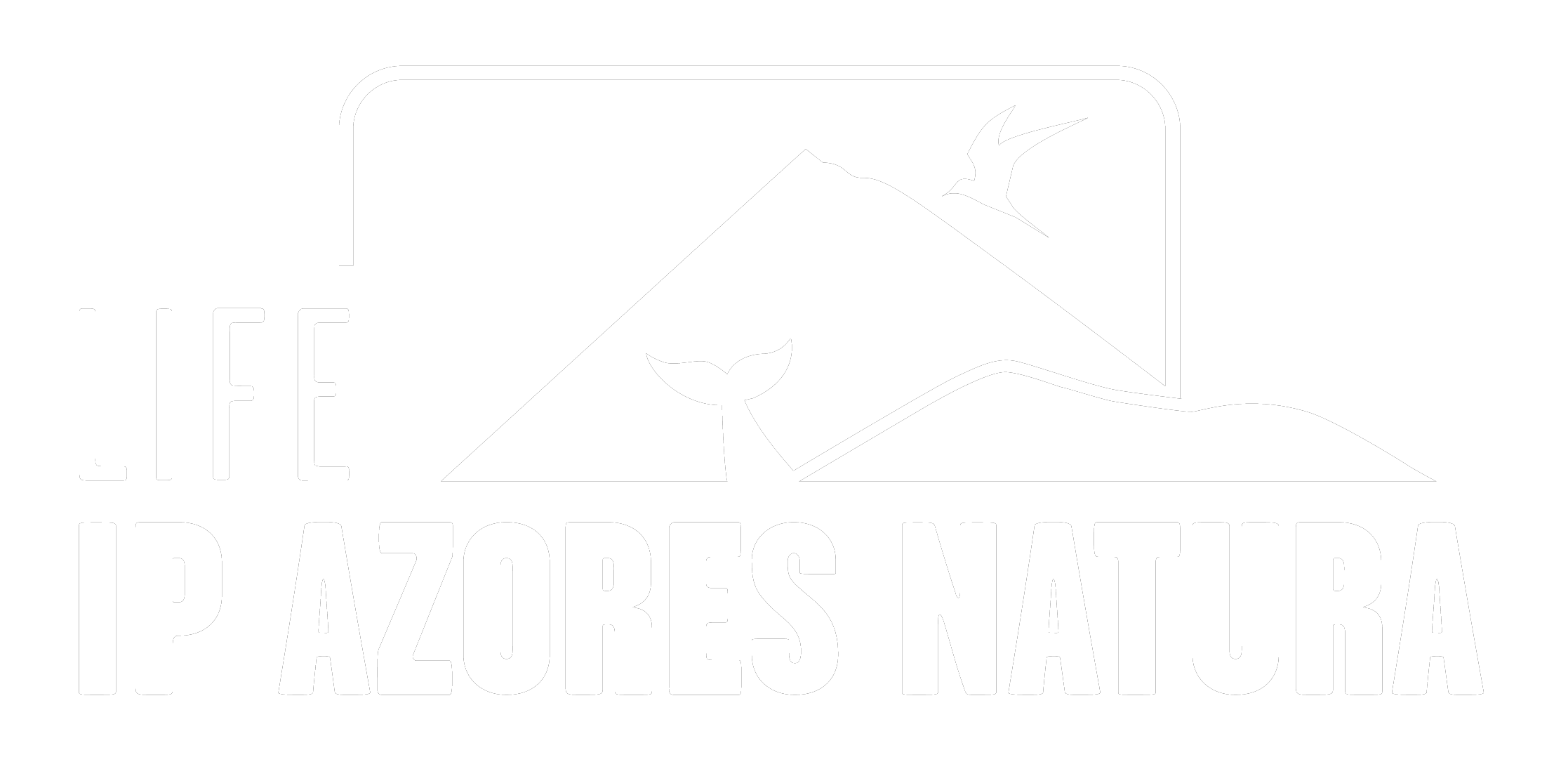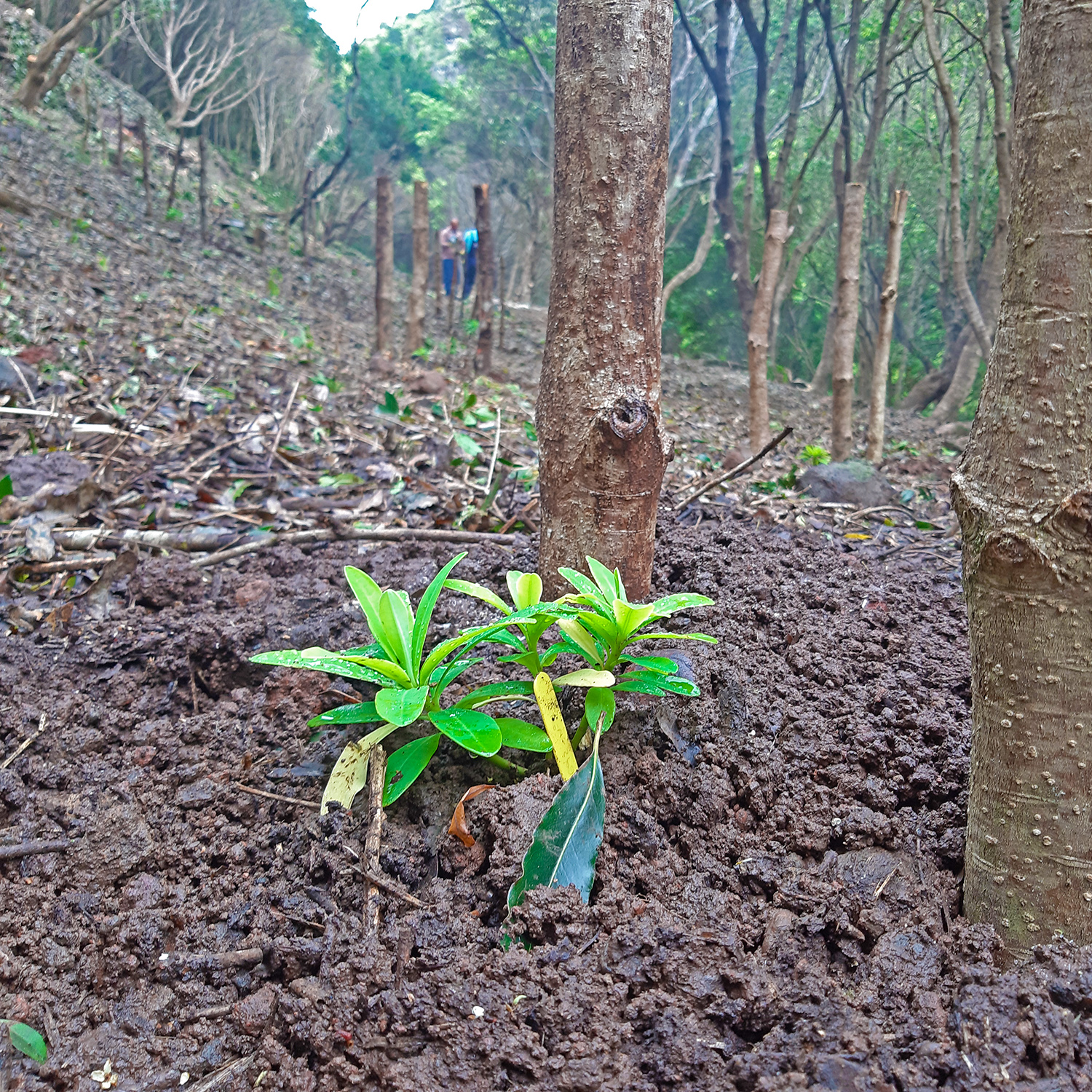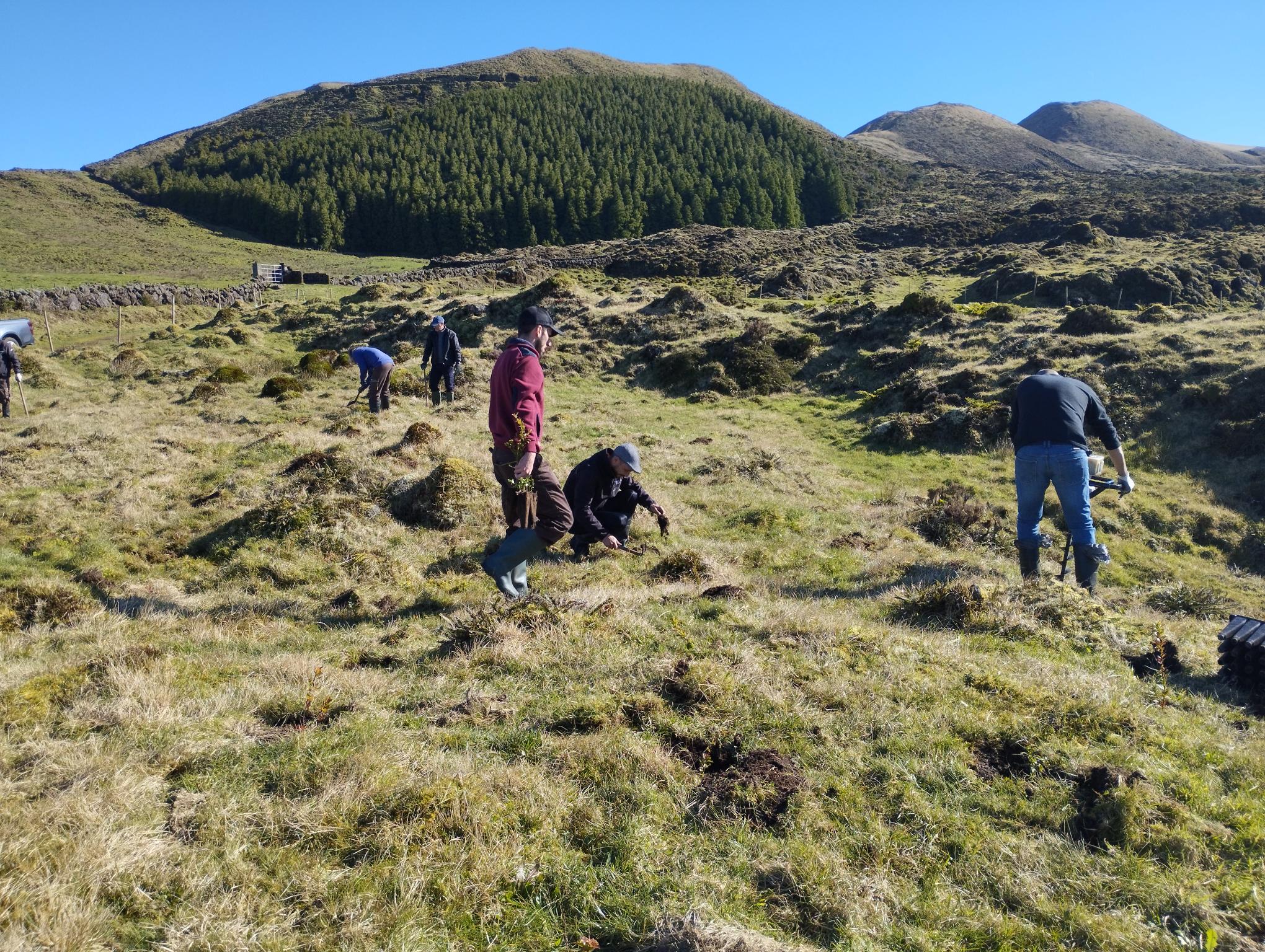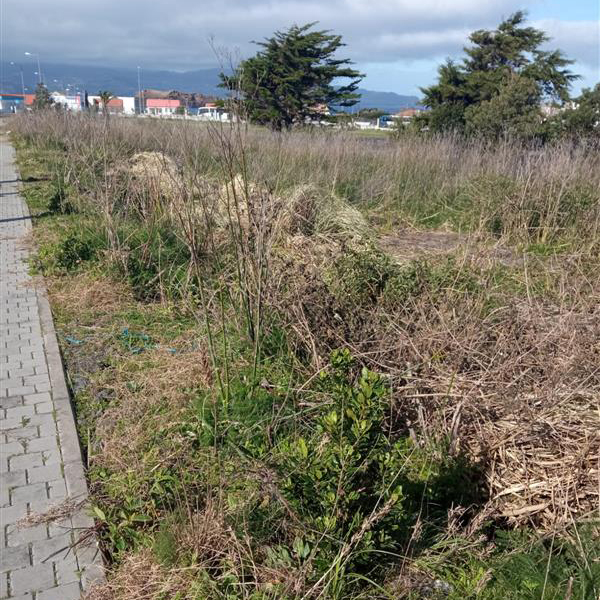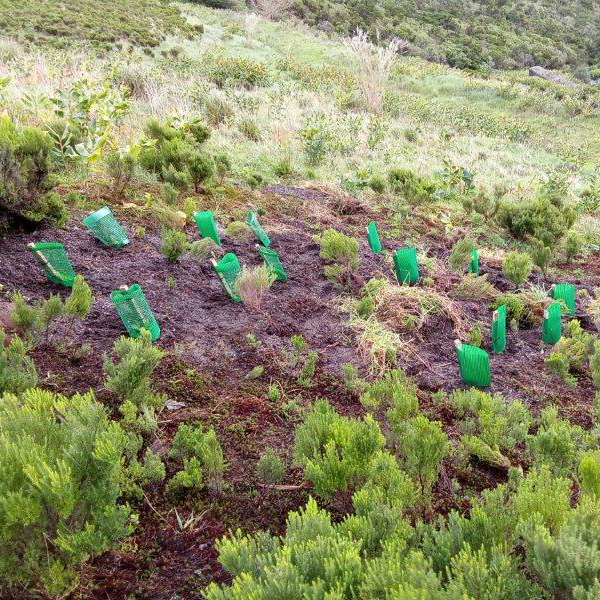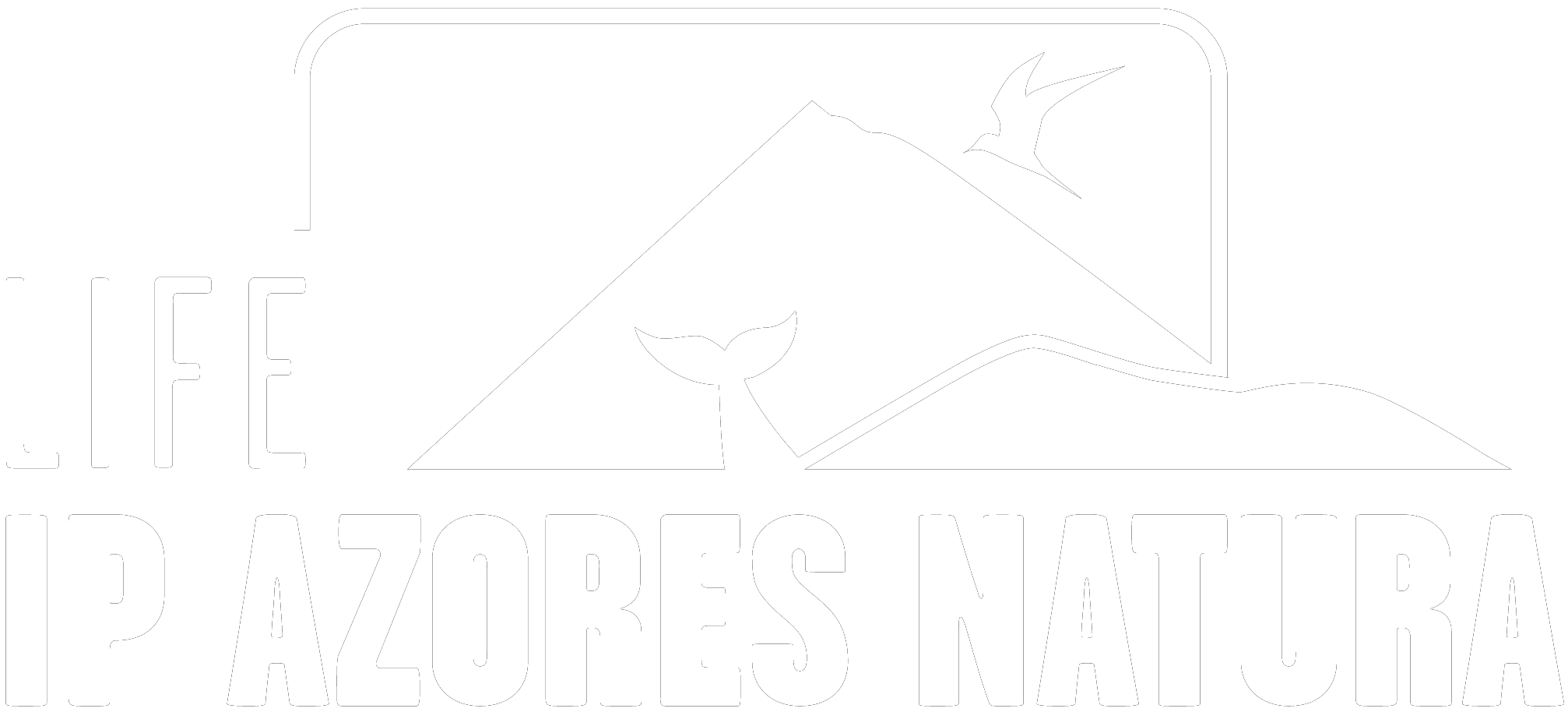The Regional Secretariat for the Environment and Climate Change, through the LIFE IP AZORES NATURE projects, the Azores Seed Bank and the Santa Maria Environment and Climate Change Service, produce seeds from several dozen specimens of the species 𝘌𝘶𝘱𝘩𝘰𝘳𝘣𝘪𝘢 𝘴𝘢𝘯𝘵𝘢𝘮𝘢𝘳𝘪𝘢𝘦. According to the Red List of the International Union for Conservation of Nature – IUCN, this species is critically endangered in the wild and in an unfavourable state according to the Habitats Directive of the European Union.
In 2002, the botanist Hanno Schaefer described this plant as a subspecies of the 𝘌𝘶𝘱𝘩𝘰𝘳𝘣𝘪𝘢 𝘴𝘵𝘺𝘨𝘪𝘢𝘯𝘢 ssp. 𝘴𝘵𝘺𝘨𝘪𝘢𝘯𝘢 that occurs in the remaining Azorean islands. However, the same author recently concluded that the species from Santa Maria is so different that it must be considered a distinct species. It is, therefore, now classified as 𝘌𝘶𝘱𝘩𝘰𝘳𝘣𝘪𝘢 𝘴𝘢𝘯𝘵𝘢𝘮𝘢𝘳𝘪𝘢𝘦, a name formally published by the botanist in the 3rd edition (2021) of his book 𝘍𝘭𝘰𝘳𝘢 𝘰𝘧 𝘵𝘩𝘦 𝘈𝘻𝘰𝘳𝘦𝘴 – 𝘈 𝘍𝘪𝘦𝘭𝘥 𝘎𝘶𝘪𝘥𝘦.
The 𝘌𝘶𝘱𝘩𝘰𝘳𝘣𝘪𝘢 𝘴𝘢𝘯𝘵𝘢𝘮𝘢𝘳𝘪𝘢𝘦 is the only endemic shrub that occurs on only one island. There are only a few dozen specimens of this species left in the wild, sheltering in an area of difficult access in the Ribeira do Salto Valley, in the eastern half of the island of Santa Maria.
To address the threats faced by this species, the LIFE IP AZORES NATURA project is carrying out actions at this site to remove invasive species, such as 𝘗𝘪𝘵𝘵𝘰𝘴𝘱𝘰𝘳𝘶𝘮 𝘶𝘯𝘥𝘶𝘭𝘢𝘵𝘶𝘮 and 𝘏𝘦𝘥𝘺𝘤𝘩𝘪𝘶𝘮 𝘨𝘢𝘳𝘥𝘯𝘦𝘳𝘪𝘢𝘯𝘶𝘮, and, between March 2021 and March 2022, has reintroduced into the wild 77 specimens of 𝘌𝘶𝘱𝘩𝘰𝘳𝘣𝘪𝘢 𝘴𝘢𝘯𝘵𝘢𝘮𝘢𝘳𝘪𝘢𝘦 to reinforce the population of this plant. Soon, sowing will also be done directly on site.
With the financial support of the LIFE Programme of the European Union.
RN 2000
